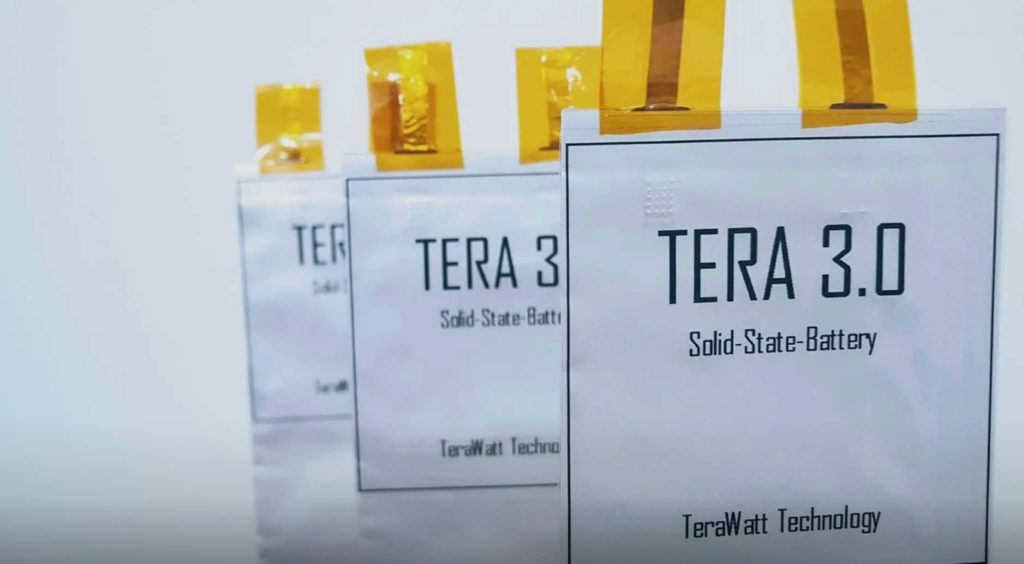
And the company believes it can get it up to 450 Wh/kg with Tera 3.0 batteries.
In a video, from January, Jack Rickard disassembled a Tesla Model 3 battery pack and said the 2170 cells it is made of had a 247 Wh/kg power density.
When TeraWatt Technology announced on August 21 it had achieved 432 Wh/kg with its solid-state battery, we got a technology with 75 percent more power density than the one offered by what is considered as one of the most advanced EVs on the market. Any doubt this is big news? But, as John Constantine would say, there is always a catch.
What is not that nice is that the Tera3.0 – as it is called – will be available for early adopters just in 2021 and for a wider clientele only in 2022. A three-year wait for the first product of the company that will be especially long if it manages to make this power density grow.
TeraWatt’s goal is to make a solid-state battery that reaches 450 Wh/kg and 1.3 kWh/l. Probably by the time these batteries are put for sale.
Another issue with this news is that the Tera3.0 battery did not have EV applications in mind. According to the company’s website, it will be applied to consumer electronics and other smaller mobility applications.
At least you’ll benefit from a cell phone that will last much more than your current one. Or that is much lighter. And of vacuum cleaners that will work much longer with batteries of the same size, but which will be able to hold much more power.
TeraWatt’s battery for cars is called Tera4.0 battery. And it promises to deliver 500 Wh/kg or 1.45 kW/l when it is offered to carmakers. When will that be?
There is no mention of that on the press release nor on the company’s website. In other words, we have no clue. Probably not even TeraWatt does, but it knows it has to be fast. There are other technologies being developed and some even claim to offer 1 kWh/kg. The early bird catches the worm, guys…
